-
 Bitcoin
Bitcoin $118100
0.44% -
 Ethereum
Ethereum $3765
5.84% -
 XRP
XRP $3.498
3.12% -
 Tether USDt
Tether USDt $1.000
0.00% -
 BNB
BNB $753.2
3.41% -
 Solana
Solana $181.7
3.58% -
 USDC
USDC $0.9999
0.01% -
 Dogecoin
Dogecoin $0.2704
12.75% -
 Cardano
Cardano $0.8684
5.85% -
 TRON
TRON $0.3151
-0.86% -
 Hyperliquid
Hyperliquid $46.06
4.51% -
 Stellar
Stellar $0.4695
2.48% -
 Sui
Sui $3.910
3.18% -
 Chainlink
Chainlink $19.36
6.65% -
 Hedera
Hedera $0.2750
3.99% -
 Bitcoin Cash
Bitcoin Cash $544.6
6.31% -
 Avalanche
Avalanche $25.12
3.69% -
 Shiba Inu
Shiba Inu $0.00001559
5.40% -
 Litecoin
Litecoin $116.8
5.10% -
 UNUS SED LEO
UNUS SED LEO $8.991
0.05% -
 Toncoin
Toncoin $3.283
2.79% -
 Polkadot
Polkadot $4.509
3.97% -
 Uniswap
Uniswap $10.67
6.58% -
 Ethena USDe
Ethena USDe $1.001
-0.01% -
 Monero
Monero $323.2
0.48% -
 Pepe
Pepe $0.00001410
6.37% -
 Bitget Token
Bitget Token $4.964
1.93% -
 Dai
Dai $0.9998
-0.01% -
 Aave
Aave $326.2
3.85% -
 Bittensor
Bittensor $421.8
2.46%
What is the settlement time for an ETH ETF trade?
ETH ETFs trade on stock exchanges with T+2 settlement, offering regulated exposure to Ethereum's price without direct crypto ownership.
Jul 09, 2025 at 07:00 am
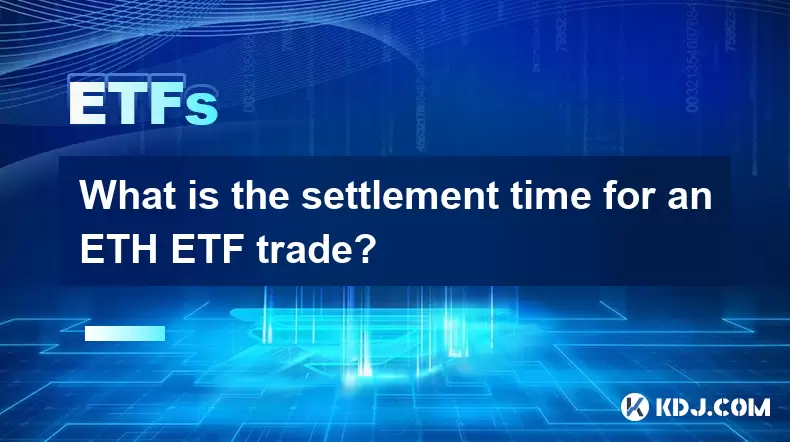
Understanding ETH ETFs and Their Trading Mechanics
An ETH ETF, or Ethereum Exchange-Traded Fund, is a financial product that allows investors to gain exposure to the price movements of Ethereum (ETH) without directly owning the cryptocurrency. These funds are traded on traditional stock exchanges, just like stocks, and offer a more regulated and accessible way for institutional and retail investors to participate in the crypto market.
Since ETH ETFs are listed on conventional markets, they follow standard trading protocols, including settlement times similar to other equity-based instruments. However, it's important to distinguish between the settlement time of the ETF itself and the underlying asset, which in this case is Ethereum.
Key Point: The settlement process for an ETH ETF trade occurs separately from actual blockchain transactions involving ETH.
How Settlement Works in Traditional ETFs
In traditional finance, when you buy or sell an ETF, the transaction goes through several stages before it’s considered settled. This includes the matching of orders, clearing by a central counterparty, and final transfer of assets and cash.
For most ETFs traded on major U.S. exchanges like NYSE or NASDAQ, the standard settlement cycle follows the T+2 rule—that is, trades settle two business days after the transaction date. This applies to both purchases and sales.
- T+0 – Trade execution day.
- T+1 – Confirmation and clearing process begins.
- T+2 – Funds and shares are exchanged, completing the transaction.
This framework ensures smooth operation across markets and helps reduce systemic risk by giving brokers and institutions enough time to verify and finalize transactions.
Application of T+2 to ETH ETF Trades
When it comes to ETH ETFs, the same T+2 settlement timeline generally applies. Even though the fund tracks a digital asset, the mechanics of buying and selling shares occur within the traditional securities market infrastructure.
Therefore:
- If you buy an ETH ETF on Monday, the transaction will settle on Wednesday.
- If you sell on Thursday, the proceeds will be available on Monday (assuming no holidays or market closures).
It's also worth noting that while the underlying Ethereum holdings of the ETF may settle instantly on the blockchain, the shares representing those holdings in the ETF format still go through the standard securities settlement process.
Important: Investors cannot redeem ETF shares directly for ETH tokens unless the fund offers in-kind redemption mechanisms, which are typically reserved for authorized participants.
Differences Between ETF Settlement and Crypto Exchange Transactions
One of the key distinctions lies in the finality of settlement. On a crypto exchange, once a transaction is confirmed on the Ethereum blockchain (usually within minutes), the transfer is considered complete and irreversible.
However, with ETH ETFs, even after the trade has been executed, there is a delay before ownership officially transfers and funds clear. This delay exists because ETF trades must pass through intermediaries such as custodians, clearinghouses, and broker-dealers.
- Crypto exchange trade: Near-instantaneous settlement via blockchain confirmation.
- ETF trade: Follows T+2 settlement rules governed by regulatory bodies like the SEC and FINRA.
This difference can impact liquidity management strategies, especially for traders who are used to the immediacy of crypto spot markets.
Factors That May Affect ETH ETF Settlement Times
While T+2 is the standard, certain conditions can influence the settlement timeline:
- Market volatility: During periods of extreme price swings, some brokers might extend settlement windows temporarily to manage risk.
- Regulatory actions: If new compliance measures are introduced, they could alter how quickly trades are processed.
- Broker-specific policies: Some platforms may impose additional internal checks that slightly delay access to funds or shares.
- Holidays and weekends: Since ETFs trade on regular market schedules, transactions occurring around non-business days will naturally take longer to settle.
Investors should always check with their brokerage platform for any specific nuances related to ETH ETF settlement times.
Frequently Asked Questions
Q1: Can I withdraw ETH directly from an ETH ETF?
No. ETH ETFs do not allow direct withdrawal of Ethereum tokens. Investors only hold shares in the fund that track ETH’s price.
Q2: Do all countries use the T+2 settlement system for ETFs?
Most developed markets follow T+2, but some emerging markets may have different standards. Always confirm with your local exchange or broker.
Q3: Are there ETFs that settle faster than T+2?
Currently, no major ETF products settle faster than T+2. However, discussions around shortening settlement cycles are ongoing in traditional finance.
Q4: What happens if I sell my ETH ETF shares before settlement?
Selling before settlement is possible if you're using a margin account that allows for good faith violations. However, repeated violations can lead to account restrictions.
Disclaimer:info@kdj.com
The information provided is not trading advice. kdj.com does not assume any responsibility for any investments made based on the information provided in this article. Cryptocurrencies are highly volatile and it is highly recommended that you invest with caution after thorough research!
If you believe that the content used on this website infringes your copyright, please contact us immediately (info@kdj.com) and we will delete it promptly.
- Tezos, Conflux, and the Altcoin Rebound: What's Driving the Surge?
- 2025-07-21 14:50:12
- DeFi Evolution: Data Oracles and NFT Integration Leading the Charge
- 2025-07-21 14:30:12
- Super Apps, Stablecoins, and Future Payments: A NYC Perspective
- 2025-07-21 14:30:12
- Cardano (ADA) Price Surges Amid Bitcoin ATH Buzz: What's Next?
- 2025-07-21 12:30:11
- Bitcoin, UK, and Sale: Decoding the Crypto Buzz in Britain
- 2025-07-21 12:30:11
- Ethereum NFT Torch: Celebrating 10 Years of Innovation
- 2025-07-21 12:50:12
Related knowledge
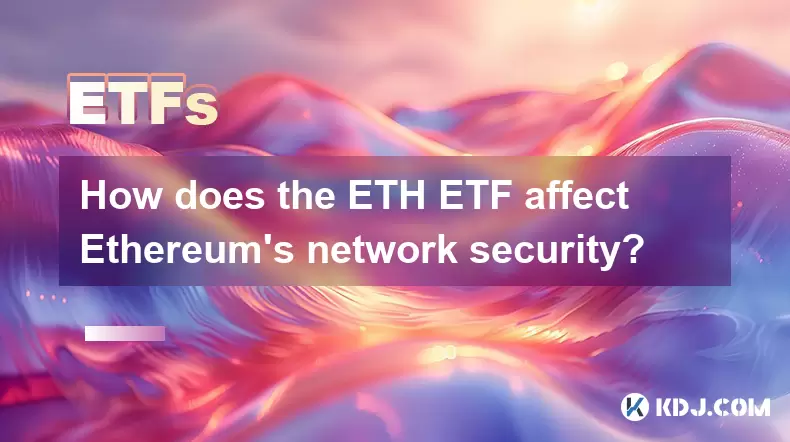
How does the ETH ETF affect Ethereum's network security?
Jul 17,2025 at 01:29pm
Understanding the ETH ETF ConceptAn Ethereum Exchange-Traded Fund (ETH ETF) is a financial product that allows investors to gain exposure to Ethereum ...
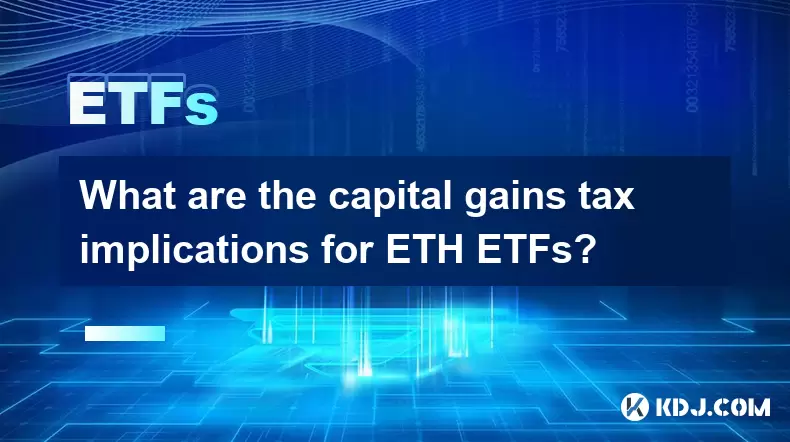
What are the capital gains tax implications for ETH ETFs?
Jul 18,2025 at 08:00am
Understanding Capital Gains Tax in Cryptocurrency InvestmentsCapital gains tax is a tax imposed on the profit realized from the sale of an asset that ...
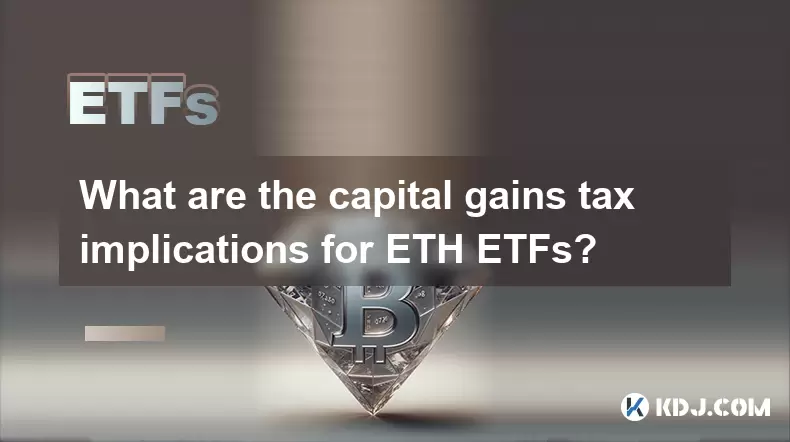
What are the capital gains tax implications for ETH ETFs?
Jul 21,2025 at 11:14am
Understanding ETH ETFs and Their TaxationAn Ethereum Exchange-Traded Fund (ETH ETF) allows investors to gain exposure to Ethereum without directly own...
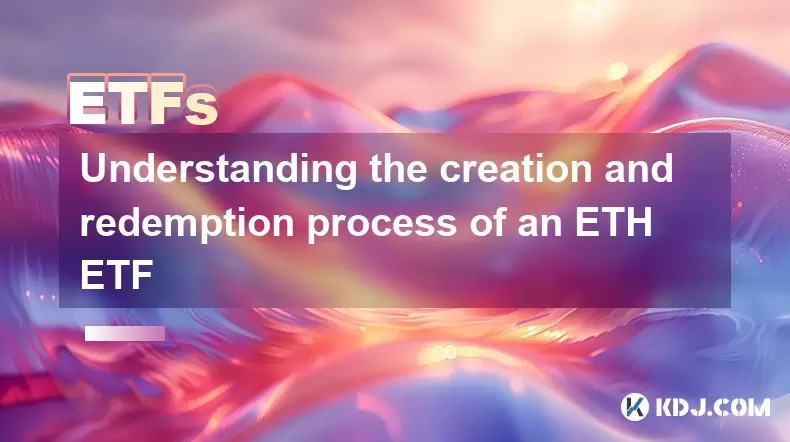
Understanding the creation and redemption process of an ETH ETF
Jul 19,2025 at 07:36am
What is an ETH ETF?An ETH ETF (Ethereum Exchange-Traded Fund) is a financial product designed to track the price of Ethereum without requiring investo...

How to analyze which ETH ETF is the best choice
Jul 19,2025 at 05:01pm
Understanding ETH ETFs and Their RelevanceEthereum Exchange-Traded Funds (ETFs) have emerged as a popular investment vehicle for those seeking exposur...

What are the liquidity risks for an ETH ETF?
Jul 21,2025 at 03:35am
Understanding Liquidity in the Context of ETH ETFsLiquidity refers to how easily an asset can be converted into cash without significantly affecting i...

How does the ETH ETF affect Ethereum's network security?
Jul 17,2025 at 01:29pm
Understanding the ETH ETF ConceptAn Ethereum Exchange-Traded Fund (ETH ETF) is a financial product that allows investors to gain exposure to Ethereum ...

What are the capital gains tax implications for ETH ETFs?
Jul 18,2025 at 08:00am
Understanding Capital Gains Tax in Cryptocurrency InvestmentsCapital gains tax is a tax imposed on the profit realized from the sale of an asset that ...

What are the capital gains tax implications for ETH ETFs?
Jul 21,2025 at 11:14am
Understanding ETH ETFs and Their TaxationAn Ethereum Exchange-Traded Fund (ETH ETF) allows investors to gain exposure to Ethereum without directly own...

Understanding the creation and redemption process of an ETH ETF
Jul 19,2025 at 07:36am
What is an ETH ETF?An ETH ETF (Ethereum Exchange-Traded Fund) is a financial product designed to track the price of Ethereum without requiring investo...

How to analyze which ETH ETF is the best choice
Jul 19,2025 at 05:01pm
Understanding ETH ETFs and Their RelevanceEthereum Exchange-Traded Funds (ETFs) have emerged as a popular investment vehicle for those seeking exposur...

What are the liquidity risks for an ETH ETF?
Jul 21,2025 at 03:35am
Understanding Liquidity in the Context of ETH ETFsLiquidity refers to how easily an asset can be converted into cash without significantly affecting i...
See all articles

























































































